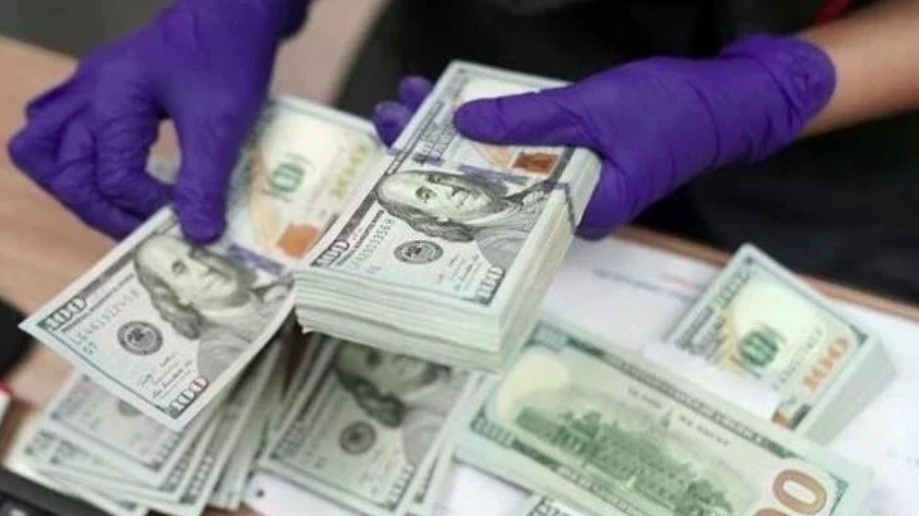Dollar appreciates in domestic market due to surge in foreign debt repayment
The increase in the USD/VND exchange rate in Vietnam is in contrast to the continuous cooling of the greenback in the international market due to a surge in domestic dollar demands for foreign debt repayment.
Currently, the US dollar index (DXY) is trading at around 99, down about 10% compared to the peak set at the beginning of this year. Meanwhile, the dollar at Vietnamese commercial banks has increased by about 2.6-3% this year against the Vietnamese dong.
The State Bank of Vietnam (SBV)’s central exchange rate last week even set a new peak, surpassing VND25,000 per dollar for the first time. The dollar selling price at commercial banks has also remained close to the ceiling, indicating that pressure on the USD/VND exchange rate has not decreased.
According to banking expert Can Van Luc, the dong is still depreciating compared to the dollar, while other currencies in the region are appreciating against the dollar.
Luc explained that despite global depreciation, the US dollar is still the main currency for international payments, maintaining its strength in the international financial market, especially as other major economies are slowing. Amid a risky and unstable world economy, the dollar is still considered a safe haven currency, so demand for dollars is increasing. This explains why the VND/USD exchange rate keeps increasing even though the dollar has cooled down globally.
Notably, Luc said, the appreciation of the dollar in the domestic market is due mostly to a sharp increase in demand for the currency to repay foreign debts for both the Government and private enterprises.
The State Treasury saw nine foreign currency purchase offers with a total value of nearly US$1.6 billion to pay the Government’s foreign debts in the first five months of 2025. The amount of foreign currency offered by the State Treasury in the first five months of this year was higher than the amount purchased in 2023 (more than US$1.2 billion) and equal to 86% of the amount purchased in all of 2024.
The Government has increased its foreign debt repayment since 2021, decreasing the amount of debt from its peak of 47.9% in 2020 to 31.8% by the end of 2024.
Private enterprises have also shifted from net dollar borrowing to net dollar debt repayment in recent years, because interest rates for dollar loans are higher than for loans in dong.
According to CEO of data provider Wigroup Tran Ngoc Bau, the pressure on the USD/VND exchange rate this year is not due to trade, or imports and exports, but is mainly due to the debt repayment obligations of the Government and businesses. Therefore, the exchange rate will not increase suddenly, but gradually.
Luc forecasts that the exchange rate this year will increase by about 3%, noting that the SBV is still able to control exchange rate fluctuations within the permitted range, which contributes to stabilising the macro economy.




